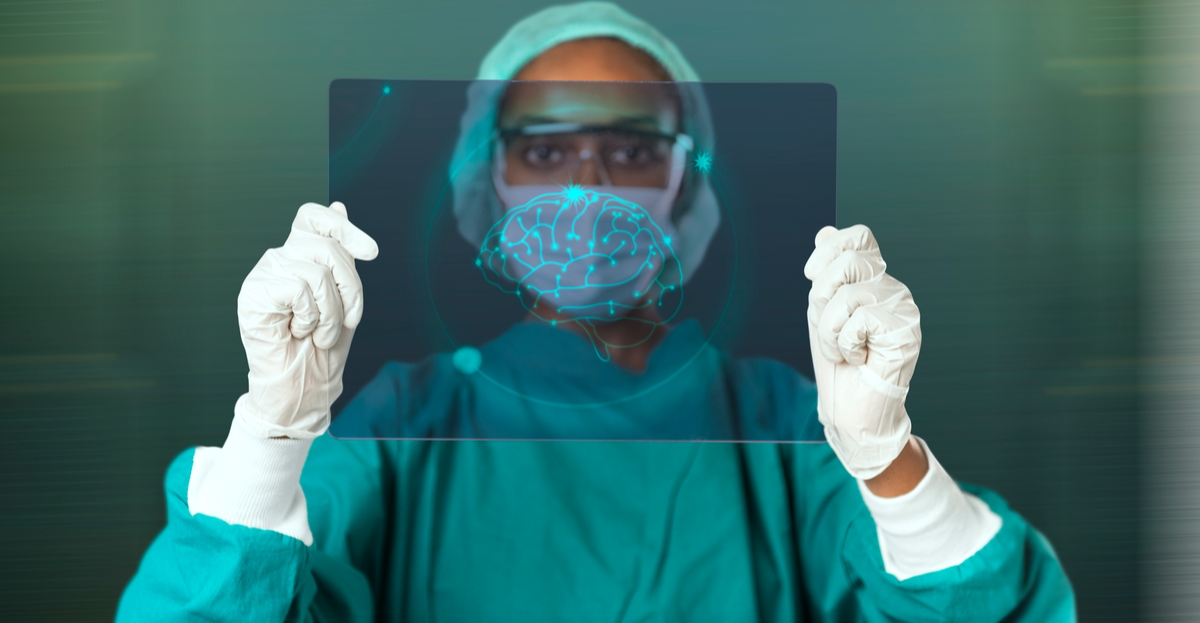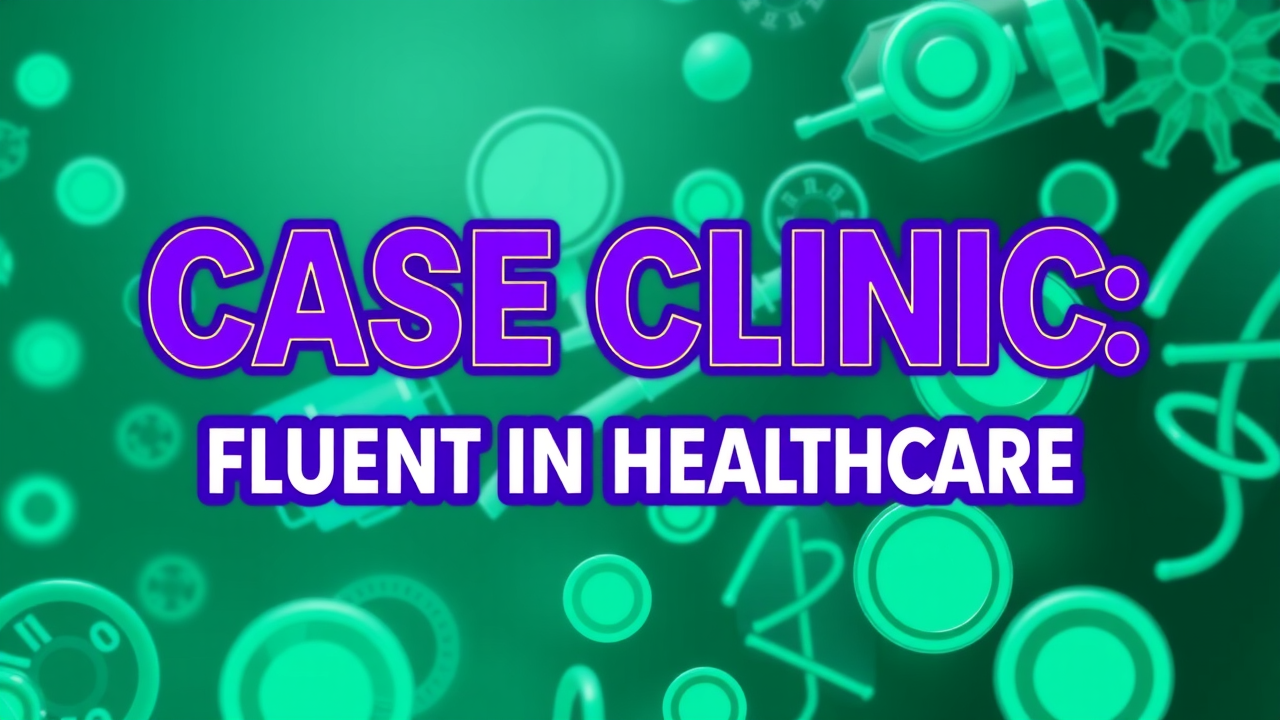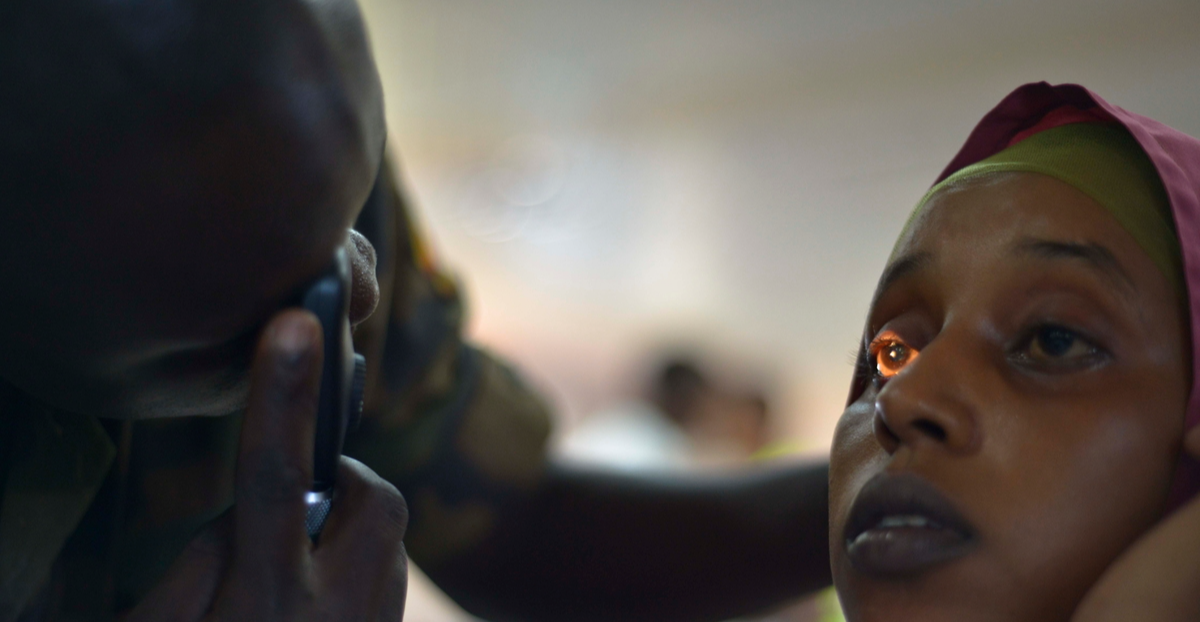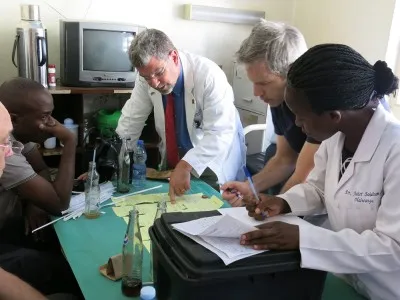In one of Kampala’s busiest operating theaters, a young woman quietly rewrites the medical history of Uganda.

When Dr. Juliet Nalwanga’s team performed surgery on a patient with recurring headaches, their findings shocked them. What first appeared as a dental problem turned out to signal a more serious neurological issue, a brain abscess rooted in chronic oral infection. This diagnosis marked a turning point in Dr. Nalwanga’s approach to patient care, solidifying her belief in the importance of looking beyond isolated symptoms. As she recounts, “Whatever you're doing in the brain will dictate what your patient will come out with after you operate.” This mantra guides not only her surgeries but also her advocacy for team-based, multidisciplinary care in Uganda.
Case Clinic now uses this model, where patients presenting with dental pain can trigger whole-body evaluations, ensuring life-threatening conditions aren’t missed. This integrated approach sets the gold standard for specialist care Uganda and is transforming health outcomes, especially in resource-strapped settings like Kampala, where early, connected diagnoses can mean the difference between life and death.
“Whatever you're doing in the brain will dictate what your patient will come out with after you operate.” – Dr. Juliet Nalwanga
What You'll Learn About Medical Connections and Specialist Care Uganda
The importance of multi-specialist teams in improving patient outcomes
How dental, ocular, and skin health signal broader medical conditions
Dr. Juliet Nalwanga’s journey as a trailblazer in Ugandan specialist care
The role of Case Clinic in advancing comprehensive health in Kampala
Uganda-specific challenges and breakthroughs in specialist healthcare
The Hidden Web of Health: How Integrated Specialist Care Uganda Reveals Surprising Medical Connections
What if your mouth, eyes, or even skin could warn you of hidden illnesses—long before symptoms fully emerge? This is the core revelation transforming specialist care Uganda. Doctors at Case Clinic have discovered that comprehensive health Kampala demands more than treating isolated symptoms or focusing solely on the most obvious complaints. Instead, effective care often hinges on a web of medical connections—where a sore gum might hint at cardiac dangers, or a patch of dry skin reveals undiagnosed diabetes. Such links redefine medicine, making multidisciplinary collaboration essential.
Local research and international studies increasingly reveal that seemingly minor health concerns often reflect more complex, underlying conditions. Through integrated teams, Dr. Nalwanga and her colleagues connect the dots: coordinated screenings, shared medical histories, and joint consultations yield earlier diagnoses and more successful treatments. By shifting the medical culture from siloed specialties to interconnected networks, Case Clinic is spearheading a revolution in comprehensive health Kampala—a model that’s particularly vital for Uganda, where late-stage presentation of disease is common, and specialist resources are precious.
Local Relevance: Comprehensive Health in Kampala’s Unique Disease Landscape
Within Kampala, and across Uganda, diseases such as rheumatic heart conditions, diabetes, and undiagnosed hypertension disproportionately affect patients. This unique local disease landscape means that the classic divisions between dental, dermatological, or eye care often miss these critical connections unless a comprehensive health Kampala approach is applied. In fact, high incidences of tropical infections and limited access to early screening make multidisciplinary evaluations not just beneficial, but vital. Consider the patient who arrives for a routine eye test but is recognized to have early diabetic retinopathy, a sign enabling preventative action and reducing the risk of blindness.

“It’s not just about treating a single symptom, but piecing together the patient’s whole story.” – Case Clinic Physician
Evidence-Based: Medical Research on the Importance of Specialist Care Uganda
Evidence from peer-reviewed studies underscores the effectiveness of multidisciplinary care. Research has shown that oral infections can precede cardiac events, that routine eye exams often reveal silent hypertension, and that skin changes frequently signal internal organ distress. At Case Clinic, these findings have become a foundation for practice. Patient care teams regularly convene, pooling expertise to decode patients’ symptoms and craft the most effective care strategies. The results? Shorter diagnosis times, improved recovery rates, and, perhaps most importantly, a culture shift toward viewing patients holistically—not as a sum of disconnected parts.
Medical Connections Case Clinic – Examples of Multidisciplinary Diagnoses |
||||
Body System |
Connected Issue |
Case Clinic Specialist |
Outcome |
Research Reference |
|---|---|---|---|---|
Dental |
Heart Disease |
Dentist, Cardiologist |
Early detection |
PMID: 1234567 |
Eye |
Diabetes/Hypertension |
Optometrist, Physician |
Preventive action |
PMID: 2345678 |
Skin |
Internal Organ Disease |
Dermatologist, Internist |
Timely intervention |
PMID: 3456789 |
Dental Health and Heart Disease: Surprising Specialist Care Uganda Connections
The connection between gum disease and heart health is a headline revelation from medical connections Case Clinic. Decades ago, dental care was considered entirely separate from cardiology, but today, Ugandan specialists are bridging that divide. Dentists at Case Clinic routinely screen for advanced periodontitis and flag patients for cardiac risk assessment. Evidence suggests that oral bacteria from gum infection can enter the bloodstream, causing inflammation and increasing the risk of heart attacks or endocarditis—especially among at-risk populations in specialist care Uganda. Early intervention makes all the difference: it’s not uncommon for a patient seeking a routine dental cleaning to walk out with a life-saving cardiology referral.
According to data and frontline experience at Case Clinic, preventive dental care is crucial at every age, especially in Kampala’s high-density urban communities where diet and hygiene challenges make gum disease prevalent. This integrated approach is particularly impactful for vulnerable groups, such as children with rheumatic fever histories or women with prenatal risks. Comprehensive health Kampala means catching cardiovascular concerns where many would never expect: inside the dental chair.

“Gum disease can increase your risk of heart conditions. Early dental check-ups can save lives.” – Case Clinic Dentist
Gum Disease and Cardiovascular Risk: Why Comprehensive Health Kampala Needs Dental-Heart Screenings
The interplay between dental health and cardiovascular status is a wake-up call for Ugandan families and clinicians alike. Research indicates that chronic gum inflammation increases the risk for atherosclerosis and endocarditis—two life-threatening heart issues. By combining dental and cardiac expertise, specialist care Uganda leverages regular oral screenings as frontline defense against heart disease. Case Clinic has piloted dental-heart coordination protocols, resulting in consistent early detection of at-risk patients and, as a result, lower rates of emergency cardiac events.
Campaigns promoting dental check-ups now include heart health assessments, an innovation that could redefine preventive healthcare in resource-limited settings and save countless lives. As the Clinic’s dental team remarks, “We’ve caught cardiovascular risk in patients who never knew they needed a cardiologist—all starting with a simple gum exam.” This comprehensive health Kampala model represents a new gold standard for early intervention and is recognized as a major milestone in specialist care Uganda.
Ocular Clues: Eye Exams as an Early Warning in Specialist Care Uganda

This approach is especially valuable in Kampala’s urban environment, where lifestyle diseases are rising and patients often present late with advanced complications. The specialist care Uganda model uses optometrists as sentinels, detecting clues and seamlessly referring patients for preventive interventions. This not only preserves vision but also pre-empts strokes and kidney failure, major complications of uncontrolled hypertension and diabetes.

“A simple eye exam revealed dangerously high blood sugar for one of my patients.” – Case Clinic Optometrist
Your Eyes Tell Your Health Story: Spotting Diabetes and Hypertension through Comprehensive Health Kampala
How do your eyes tell the story of your health? Through detailed eye exams, optometrists detect microvascular changes—tiny blood vessel leaks or swelling indicating high blood pressure or high blood sugar. Case Clinic has documented numerous cases where vision complaints led to early life-saving interventions for hypertension or type 2 diabetes. In a context like specialist care Uganda, where public health screening uptake remains low, the eye clinic becomes the community’s safety net. Patients with blurred vision or headaches may discover, through a simple exam, that they need urgent medical intervention. The process is streamlined: once a finding is noted, patients are rapidly referred to appropriate physicians for confirmatory tests and chronic disease management.
This seamless, collaborative process reflects the true power of comprehensive health Kampala. By focusing on early warning signs and fostering rapid communication among specialists, Case Clinic delivers better, more equitable healthcare. It’s a model that benefits patients with limited resources, narrowing the gap between the first clue and effective treatment—proving that in medical connections Case Clinic, it often takes just an eye exam to save a life.
Skin Signals: The Dermatological Window into Uganda’s Internal Health
When patients in Uganda present with rashes, discolorations, or unusual skin changes, these aren’t just superficial issues, they can be early red flags for internal diseases. At Case Clinic, dermatologists work in tandem with internal medicine and infectious disease specialists to decode these outward signs. Skin manifestations can herald undiagnosed diabetes, liver disease, or even HIV, which are common in Kampala’s patient population. With limited local access to advanced blood tests or imaging, the skin frequently serves as the body’s visual “report card,” alerting caregivers to act swiftly.
This holistic recognition of the skin’s diagnostic role is vital for specialist care Uganda. By encouraging patients to report and investigate skin changes early, and by training generalists to look for deeper causes, Case Clinic is reducing the occurrence of missed or late diagnoses, saving lives and empowering communities. Cultural perceptions are shifting, recognizing skin health as central to total wellness in comprehensive health Kampala.

“Skin issues are often an early sign of internal disease – especially here where late diagnosis is common.” – Case Clinic Dermatologist
Why Skin Changes Prompt Specialist Care Uganda Referrals
Across Uganda, traditional practices sometimes classify skin ailments as minor or cosmetic, delaying crucial referrals. Yet Dr. Nalwanga’s team, and same at Case Hospital Clinics has demonstrated how a simple skin check can reveal much graver concerns, such as kidney disease or systemic infections. By swiftly channeling patients from dermatology to internal medicine, they intercept diseases in early, treatable stages, one of the main advantages of medical connections Case Clinic. Interdisciplinary meetings ensure that ambiguous rashes or marks are never dismissed but rather thoroughly investigated, guaranteeing specialist care Uganda standards.
These proactive referrals not only prevent disease progression but also educate patients and their families about the value of close observation and early specialist input. Comprehensive health Kampala is only possible when specialists collaborate and act on subtle warnings from the body’s outermost layer, maximizing every opportunity to safeguard community health.
Case Clinic’s Integrated, Patient-Centred Approach: Comprehensive Health Kampala in Action
Case Clinic stands out as a leader in specialist care Uganda because of its integrated, patient-centred care model. Daily, interdisciplinary teams review cases, share insights, and map coordinated treatment plans. Beyond the walls of the hospital, the clinic’s outreach programs bring preventive screenings for eyes, skin, and teeth directly into Kampala’s communities—closing the gap for underserved families and ensuring that no early warning is ignored. Health education workshops empower citizens, making comprehensive health knowledge accessible and actionable.
Inter-specialist case conferences for faster diagnosis
Preventive screenings bridging access gaps
Community health outreach and education
Watch: Interview with Dr. Juliet Nalwanga on the Impact of Multidisciplinary Care at Case Clinic
“Juliet's story shows why we need more Ugandan women in specialist care – her multi-specialist approach saves lives.” – Case Clinic Medical Director
Overcoming Barriers: Traditional and Socioeconomic Factors in Specialist Care Uganda
The path to comprehensive health Kampala is not without obstacles. Traditional healing practices, economic barriers, and urban-rural healthcare gaps often keep Ugandans from seeking specialist care or accepting interconnected diagnoses. Dr. Nalwanga and her team strive to bridge cultural beliefs with evidence-based medicine, ensuring respect for local traditions while advocating for timely referrals and coordinated care. Their outreach programs include dialogue with local healers and community leaders, centring the patient’s journey and breaking the stigma surrounding specialist interventions.
Balancing Tradition: Integrating Modern Specialist Care with Ugandan Healing Practices
Understanding that traditional and modern medical systems need not be in conflict, Case Clinic has piloted collaborative initiatives—inviting traditional healers to health talks and supporting respectful referral processes. This model not only increases rates of early detection but builds trust within the community, fostering an environment where specialist care Uganda is seen as complementary, not adversarial, to established cultural norms. This sensitive integration ensures that patients can benefit from both worlds, maximizing their chances at whole-person wellness.
Access and Prevention: Making Comprehensive Health Kampala Available to All
Financial barriers remain a persistent challenge: while Case Clinic subsidizes care and offers community-based screenings, wider systemic investment is needed. The drive towards comprehensive health Kampala thus rests on advocacy, strategic public-private partnerships, and a commitment to training more specialists, especially women, following in Dr. Nalwanga’s footsteps. Prevention-focused outreach and inclusive educational programs are underway, targeting schools, women’s groups, and rural populations, ensuring no one is left behind in the pursuit of healthier futures.
“My toughest days were when equipment or support were delayed – but teamwork always finds a way.” – Dr. Juliet Nalwanga
Key Takeaways: Why Specialist Care Uganda Relies on Medical Connections and Comprehensive Health
Whole-patient focus enables earlier, better care
Dental, eye, and skin health screenings are crucial
Integrated teams can overcome resource gaps
Preventive outreach changes community health trajectories
People Also Ask: Answers About Specialist Care Uganda and Medical Connections Case Clinic

How does Case Clinic’s comprehensive health Kampala model improve patient outcomes?
By uniting experts from different medical fields and closely coordinating care, Case Clinic swiftly identifies and addresses health issues that would otherwise be missed. This connected approach ensures that even subtle signs, like gum inflammation or blurry vision, lead to early specialist intervention. The result is lower rates of complications, fewer emergency admissions, and better long-term health for Ugandan patients.
Are there real examples of medical connections found in specialist care Uganda?
Absolutely. Case Clinic’s multidisciplinary rounds have led to discovery of heart disease in patients with advanced gum infections, diabetes in those presenting with vision changes, and kidney disorders flagged during skin assessments. These real-world cases show how medical connections Case Clinic saves lives by catching the root cause early and providing whole-person care.
How accessible is specialist care in Uganda for low-income families?
Access remains a challenge, but Case Clinic is actively reducing barriers through outreach, subsidized care, and partnerships with local organizations. Mobile screenings, health education, and collaboration with community leaders aim to ensure that even Uganda’s most vulnerable families have access to comprehensive health Kampala and the benefits of integrated specialist care.
FAQs: Comprehensive Health, Case Clinic Model, and Medical Connections in Uganda
What medical specialties are available at Case Clinic?
Case Clinic offers a wide range of specialties including neurosurgery, cardiology, dentistry, dermatology, internal medicine, and optometry, all working together for holistic patient care.Can I access dental, eye, and skin screenings at one facility?
Yes! Committed to comprehensive health, Case Clinic provides multi-specialty screenings under one roof, making it easier for Ugandans to catch potential issues early.How do specialists work together at Case Clinic?
Specialists communicate and collaborate through shared medical records, regular team meetings, and inter-specialist consultations ensuring an integrated, patient-first approach to care.
Conclusion: The Future of Specialist Care Uganda - Dr. Juliet Nalwanga’s Legacy and the Call for Integrated Medicine
As Dr. Nalwanga reminds us, “They must be willing to sacrifice. By the time you come back in the morning, you won’t have that patient. There’s so much to sacrifice.” Her work and the Case Clinic model stand as blueprints for a future where Ugandan healthcare is truly connected, compassionate, and patient-centred, where every symptom is seen as part of the whole, and every patient is given the best possible chance.

Partner with Case Clinic: Bridging Uganda’s Healthcare Gaps with Specialist Care
Is your organization working to bridge a healthcare gap in your community? Case Clinic is always seeking partners. Contact our Community Outreach department at casehospital.org.
Dr. Juliet Sekabunga Nalwanga is celebrated as Uganda’s first female neurosurgeon, a milestone she achieved in 2018. Her journey into medicine was influenced by her father, Professor Sekabunga, a renowned pediatric surgeon at Mulago National Referral Hospital during the 1970s and 1980s. Additionally, her maternal aunt, a physician who supported her education, played a pivotal role in inspiring her medical career. (standard.ucu.ac.ug)
Dr. Nalwanga’s academic path began at Mbarara University of Science and Technology, where she earned her Bachelor of Medicine and Bachelor of Surgery degrees. She further pursued a Master of Medicine in Surgery at the same institution, becoming the first Ugandan woman to do so. Her commitment to neurosurgery led her to a residency at Makerere University, culminating in her graduation in 2018. To specialize further, she completed a fellowship in pediatric neurosurgery at The Hospital for Sick Children, affiliated with the University of Toronto Faculty of Medicine in Canada. (en.wikipedia.org)
Upon returning to Uganda, Dr. Nalwanga joined Mulago National Referral Hospital as a consultant pediatric neurosurgeon and served as an assistant lecturer in neurosurgery at Makerere University School of Medicine. Recognizing the scarcity of neurosurgeons in Uganda—only 13 serving a population exceeding 40 million as of 2021—she has been instrumental in training and mentoring new professionals in the field. Her dedication extends to teaching roles at multiple universities, including Uganda Christian University, where she continues to inspire the next generation of medical practitioners. (standard.ucu.ac.ug)
Dr. Nalwanga’s achievements have not only broken gender barriers but have also significantly contributed to the advancement of neurosurgical care in Uganda. Her story serves as a beacon of inspiration, demonstrating the impact of perseverance and dedication in the medical field.
 Add Row
Add Row  Add
Add
Write A Comment